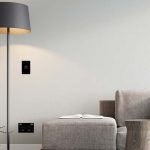Anxiety and panic attacks are overwhelming, and most people seek symptomatic management through natural means. This range of therapeutic techniques involves hypnotherapy, which gains attention in the context of anxiety because it allows deep states of relaxation that may be helpful to shape thought patterns and potential causes of anxiety responses. Generally speaking, hypnosis has often been misunderstood; however, mainstream clinical hypnotherapy today is science-based and supports other treatments and self-care modalities.
Anxiety and Panic Attacks: How It Works
Anxiety is the normal response to any stressful situation, but it is considered abnormal if the anxiety is constant or inappropriate in relation to the actual life circumstances and impairs coping with life. Generally speaking, panic attacks are associated with severe anxiety; these are sudden, intense episodes of fear or discomfort that include rapid heartbeat, shortness of breath, or dizziness.
Traditional pathways to addressing anxiety include CBT, mindfulness, and other forms of relaxation techniques, while hypnotherapy for anxiety offers a different route in that it accesses the subconscious mind directly-that part of the brain where deep-seated beliefs, memories, and automatic responses lie.
What is hypnotherapy?
Hypnosis is a process of guided, focused attention, deep relaxation, and suggestion in an attempt to reach the subconscious mind. During hypnosis, the body relaxes into a quiet, meditative state while the mind becomes alert and receptive. Contrary to popular conceptions, a hypnotized person is neither asleep nor under the control of any other person, and a hypnotized person may refuse to accept some suggestions that might seem inappropriate.
The Science of Hypnosis and Anxiety
Indeed, several studies have demonstrated that via hypnosis those parts of the brain implicated directly in the control of emotions, attention, and even self-awareness can be reached. Deep relaxation may reduce physiological arousal, like heart rate and muscle tension associated with anxiety and panic attacks.
Anxiety puts that “fight or flight” part of a person’s brain into overtime. Hypnotherapy for anxiety disrupts this self-perpetuating cycle of anxiety, which enables the body and mind to return to a state of balance more in line with normality. During this relaxed condition, the subconscious is most receptive to positive suggestions so that new techniques for coping and calming associations can be internalized.
These studies also suggest that hypnosis can sharpen the brain’s intentional capabilities, which in turn decrease rumination-the repetitive thinking that feeds feelings of anxiety. Better self-regulation may foster over time a greater sense of calm and confidence during times of stress.
How Hypnotherapy Helps Manage Panic Attacks
These could be either physical or psychological panic attacks. Many describe these as sudden, uncontrollable waves of fear that seem to appear without warning. Anxiety hypnotherapy in Los Angeles may help people know the root cause behind such episodes.
Typically, the hypnotherapist may take the client back to relive a recent panic episode within a relaxed and controlled state. From that relaxed perspective, through such a process of revisiting that experience, the subconscious begins to uncouple fear from its cue. New associations and positive nature, thus develop and the possibility of a panic response is minimized.
Many hypnotherapists also give their clients self-hypnosis techniques that they can practice in daily life. These may enable them to relax before they become anxious or at the onset of an imminent panic attack. With time, the client becomes increasingly confident and competent to deal with situations that previously tested them.
The use of suggestion and visualization remains one of the most powerful ways in which hypnotherapy can be used to treat anxiety. During deep relaxation, the mind is even more receptive to positive affirmations and visualizations. A hypnotherapist may engage a client in imagery exercises where the client imagines being calm, safe, and confident in any given circumstance that earlier distressed them.
Visualization techniques reprogram the subconscious responses through the same neural pathways used by the body during real-life experiences. That means that the mental imagery of a peaceful state, while in hypnosis, can result in real changes concerning the body’s reaction to stress.
Integrating Hypnotherapy into Other Approaches
Anxiety hypnotherapy can be performed entirely on its own or together with other approaches such as counseling, mindfulness, and lifestyle changes. Many therapists incorporate hypnotherapy into an already running program because this modality works well together with cognitive and behavioral approaches.
For example, while CBT operates at the conscious level of thought patterns, hypnosis operates at the subconscious level, thereby further solidifying positive life changes brought about through therapy. Such a dual-layered approach may improve emotional resilience and reinforce the long-term benefits of stress management.
What to Expect During a Hypnotherapy Session
A typical session, therefore, always starts with discussing a client’s goals, challenges, and emotional triggers. Further ahead, the hypnotherapist guides him into a relaxed state through breathing, visualization, or progressive muscle relaxation. In this hypnotic state, the therapist presents personalized suggestions that will encourage one toward calm thinking, confidence, and emotional balance. In practice afterward, there usually follows a report of deep relaxation, refreshment, clarity, and focus. Many people find their reaction toward stress over time with successive sessions.
Final thoughts
Hypnotherapy for anxiety is, therefore, a natural, non-invasive method devised to make an individual aware of and manage his emotional reactions. It promotes calmness and dampens the panic responses while increasing one’s sense of being in control as regards thoughts and emotions by acting on the subconscious mind. Even though the experience of hypnosis differs for everybody, many attest that it can lead to long-term stability in terms of emotions once integrated with meditation, counselling, and healthy lifestyle habits.
Whether it is just mild anxiety or frequent panic attacks you are struggling with, trying hypnotherapy with a certified practitioner may be one of the most important steps toward restoring inner calm and confidence.


